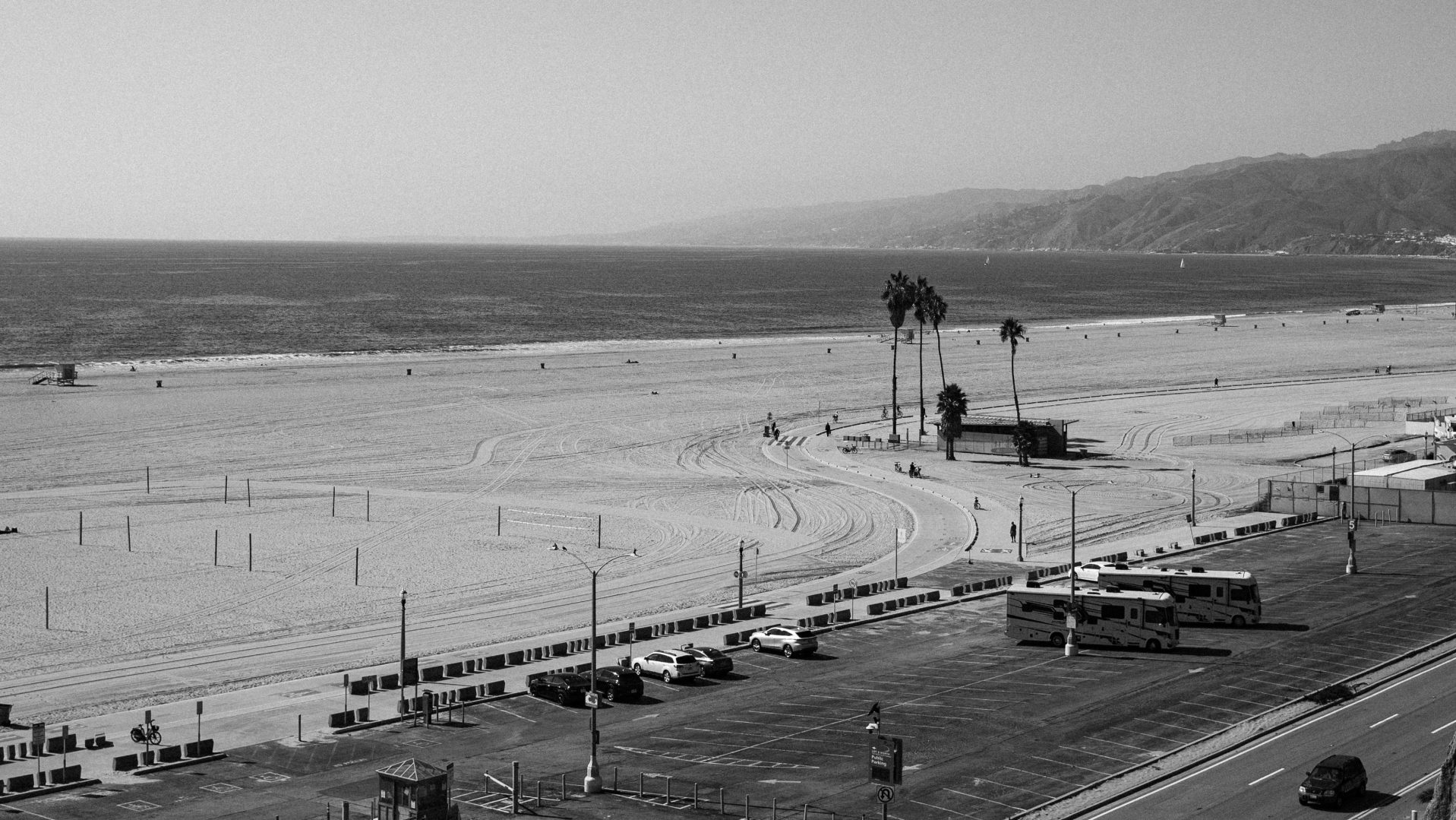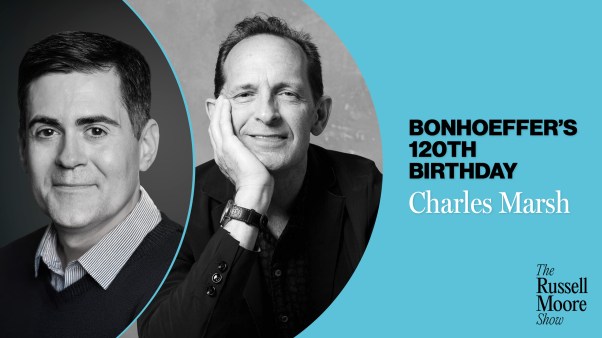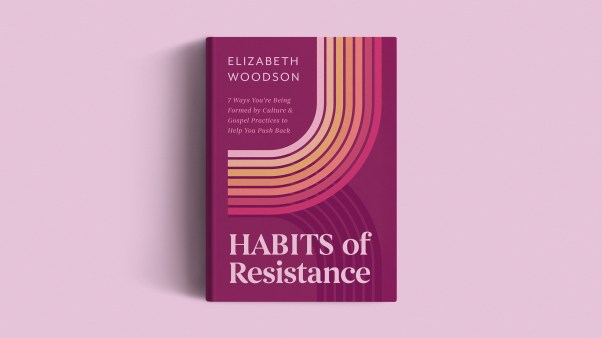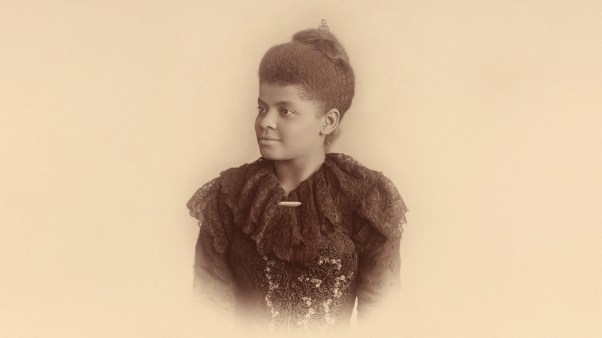Sometimes you see things that your brain can’t immediately comprehend—a vision too strange or horrible to fit into our category of expectation. Language can take a while to catch up to the scenes that play out before us.
A few weeks ago, I sat on the trunk of my car in a no-parking zone, waiting for my wife to walk down from her second-story church office on Head Street in our small town. She was on maternity leave, training her replacement with our baby wrapped in a carrier across her front as she typed away on the laptop—passing on her passion and expertise to the children’s ministry coordinator coming in behind her.
As I waited for her down a narrow alley, I thought about the hilarious concept of myself sitting on the back of a trunk, hazards on, one leg propped up, like I was in some 1970s rom-com waiting for my woman.
I was thinking about the idea of photography and how we pose to imitate natural life. I was thinking to myself about John Berger’s Ways of Seeing—a book that I still haven’t read but have heard so much about—and how funny it is that we take photos of ourselves and others in places or positions that life would rarely naturally cause, as if art created life. So I sat on the trunk of my car in a way that made me feel cool, away from any eyes or cameras, congratulating myself on living artfully even down an empty back alley.
Just a few seconds later, my theorizing about my own image was interrupted by a scene that I was unable to process. All I knew was that my body said to run toward the tiny flailing limbs.
I saw the silhouette of my baby’s head inches away from the pavement, her neck careening to the edges of my wife’s fingertips. I saw two or three men standing around, looking down at the curb. There was my friend who had helped carry the stroller down from the office and who had recently endured an unspeakable tragedy of his own. And there was my wife, with a skinned knee, shaking legs, and arms that had held our baby tight to her chest as her foot caught the curb and her legs buckled beneath her.
Five seconds later, it was clear that all was completely fine, but we remained in a haze of adrenaline and the blurry edges of our vision. Our brains were still catching up. As reality reconfigured and our tongues came unglued, we all chuckled nervously on the street’s sidewalk and thanked the men who had stopped suddenly to help my wife up from her semi-prone position, patting her back and asking if she was okay.
As we returned to the car, the sight of my open trunk made me laugh in its absurdity. We buckled our baby in the car seat, and my wife told me she had only seen that kind of fear in my eyes once or twice before. We both congratulated me on proving that I wasn’t a “flight” guy when that flight-or-fight response hit, but I secretly wasn’t so sure. As I turned the key in the ignition, it seemed that both the small, young women in my care were safe for the time being. But the scene lingered for a while after. Now, here I am writing about it a month later as I construct some kind of pitch for why you should be interested in our latest literary endeavor.
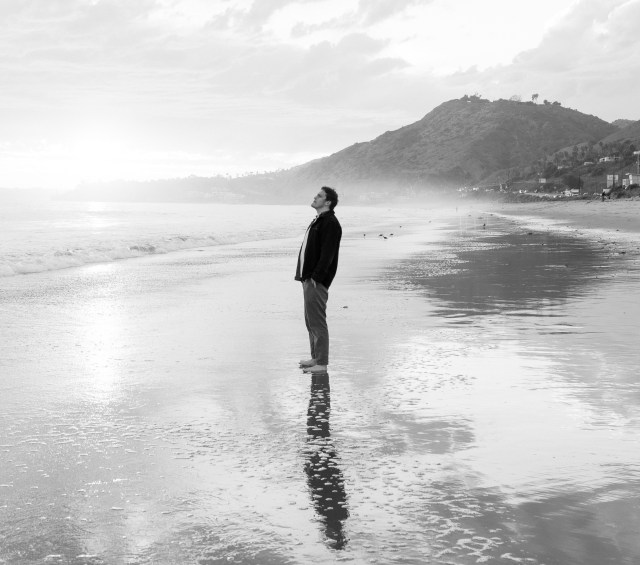
Elizabeth Joy Sanders, Malibu, 2025
Sometimes, the most monotonous settings can yield the most jarring insights. Clarity can come after you’ve wiped the fog from the lens of daily life, or the glass we see through darkly catches a piercing shard of light, revealing just how dim our perception actually is most of the time.
Substack essays and social clips galore tell us about the overlapping crises we’re experiencing as a society, and the algorithmic overload we’re all exposed to through our filter bubbles. We see mini-apocalypses happening every day, with fresh tension and terror revealed every time we click the side button of our slim plastic rectangle.
Nonetheless, everyday life doesn’t feel so bad all the time. Humdrum sets in, and we go about our routine commutes to and from work, our conversations with and between family, our desires for rest and excitement—all these come and go with the flow of weeks and years going by. The tension feels strange for many people.
So often, the college students and early-career go-getters I interact with desperately want to know whether their creative work has any worth, whether the fire in their bones will lead to any legitimate opportunity to stamp the world with their mark. More often than not, the hum of modern life makes it feel like there’s both too much and too little going on to make sense of anything fully.
The life of Thomas Stearns Eliot offers us an unsentimental and self-forgetful view of the creative person at work: a daytime banker with the moonlit mind of a poet.
During his years, the West had made it through another war, but not without an adrenal overload, a seared conscience, and a traumatizing scene to decompress from. There was no going back. The center could not hold, and the blood and cruelty had boiled over into something new, sticky and sickly.
Standing on the edge of a stagnant river that snaked its way through his adoptive country, Eliot scanned the shore and saw the ruins of a way of understanding the world that no longer worked—a wasteland of fragmented meaning.
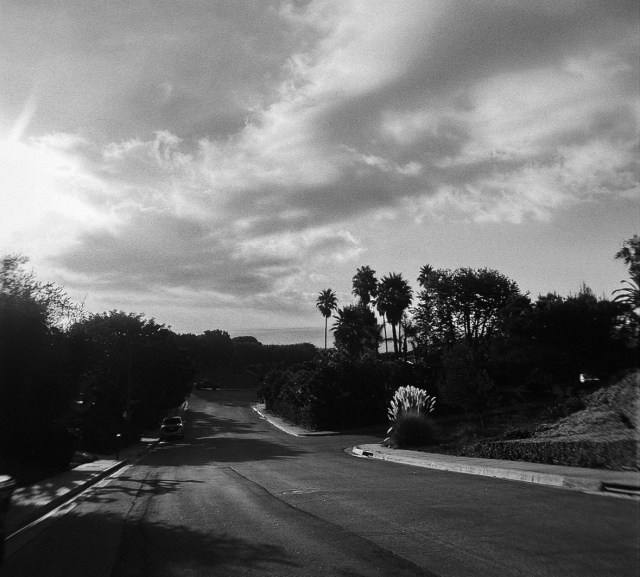
Elizabeth Joy Sanders, Malibu, 2025
Eliot had a friend in Ezra Pound, a fellow poet who did not make it through the war unscathed, both morally and mentally. While Eliot and Pound wrote about their context filled with evil powers and undertones, they conceived these flashes of gritty human history as glimpses of an overarching whole—one that could still be communicated through the conduit of poetry.
Eliot deeply admired Pound for focusing his poetic impulse outward. Pound examined mythic knowledge and the annals of obscure human history in order to secure the self within a universal metanarrative. He argued that the esoteric lore of the past could indeed help construct a poetic understanding of ourselves in the now. Yet The Pisan Cantos features one of Pound’s most famous lines, in which he admits defeat: “Tho’ my errors and wrecks lie about me … I cannot make it cohere.”
Despite his erudition, Pound could not bind the scattered subjectivism of postmodernity into an integrated whole. It had been blown to smithereens by the world wars. Even so, he couldn’t shake the belief in some kind of coherence undergirding reality, of which he spoke about in strange and confusing bursts, exclaiming that “it coheres all right, even if my notes do not cohere.”
Both of these poets, integral to their literary moment, wrote in a riddled new language. They drew on the conventions of the old, broke many linguistic rules of the time, and were only able to make partial sense of the new world. Each captured the fragmented syllables of a cultural wasteland, wrecked and ruined.
The years that preceded them had shattered any naive perceptions of how bad human evil could actually be. How could one live a normal life, make good art, and find meaning in the midst of such cruelty and at the center of such meaninglessness?
For Eliot, his daily life in the finance and publishing sectors allowed him to intuit the situation of a global ecosystem. He absorbed the ingredients and flavors of the society around him, forming a poetic perspective that would be consumed and chewed on for generations to come. This new way of rendering the world—through active creativity—brought stylistic forms and expressions that would carry us all the way from a postmodern age into our era of hypermodernity, with all its simultaneous comforts and confusion.
Today, it feels like many things are coming apart once again. Centers that once held are exploding with a ferocity that we haven’t experienced before in our post-war, Western millennial and Gen Z lives. I don’t ultimately think it is, but it can sometimes feel like the world is truly on the brink of something incomprehensibly sinister.

Elizabeth Joy Sanders, Malibu, 2025
I once started an arts and culture magazine called Ekstasis. In its infancy, it felt fragile and small, like it was going to fall to pieces if I didn’t prop it up with monthly poetry postings and cradle it with Instagram carousels. It felt weak, but the work felt lively—it was invigorating, and it was my baby before I had a baby. Now I’ve matured slightly, and this project has reached a kind of adolescence, currently growing into its new identity as Inkwell. It’s still figuring out what it is, but it has a lot more energy and sustenance than in those newborn months.
I can honestly say that I don’t know whether the world of arts, culture, media, and all the things that I give my hours of leisure and paid labor to will survive this century’s great upheaval in their current form. Indeed, they will mature and morph, often in uncomfortable and unfamiliar ways.
Yet I believe that God beckons us through the strange appetite for beauty and truth that remains embedded in the human spirit, which he loves so much. He will continue to beckon and call to us through our heavenly longings, and I desperately want to play a tiny role in creating atmospheres and environments that welcome the call, no matter how faint or how small.
Ezra Pound’s poetry did not make it all cohere, nor did his notes. T. S. Eliot revealed the wasteland’s dusty ruins, but he couldn’t bring us back into the garden. Our poetry and art might not create reality, but they shape our hopes and longings and can remind us over and over of “the laughter in the garden, echoed ecstasy.”
We think of ourselves way too much, posturing on the trunks of our cars and in front of our black mirrors, absorbing fake words that come from a void and go nowhere fast.
As in their day, it seems like history and language are once again at an inflection point. Eliot and Pound knew something strange was afoot. We once again face a pivotal moment. And it is up to us to dip our fountain pens into the ink of the past and to reckon with the burning in our bones to tell the story of the future.
Though we see and speak in part now, all will one day be revealed. In the meantime, we echo the question posed by C. S. Lewis: Why should God hear the babble that we think we mean? I think it’s because he loves us enough to hear our meaningless chatter become half-formed syllables on the tongue of history.
From dust, there will be new lore. We need creative outlets and lasting networks that will help us thrive in this strange new world. We need local haunts and third spaces where friendships are formed and where the depths of our souls can cry out to one another.
For the next few years at least, Inkwell has the resources and inspiration to help make something small and special happen, and we don’t want to let this opportunity pass us by.
Let’s dine together and find a new language for the future. Be a Local.
Conor Sweetman is the founding editor of Inkwell (formerly Ekstasis) and the director of innovation at Christianity Today.

